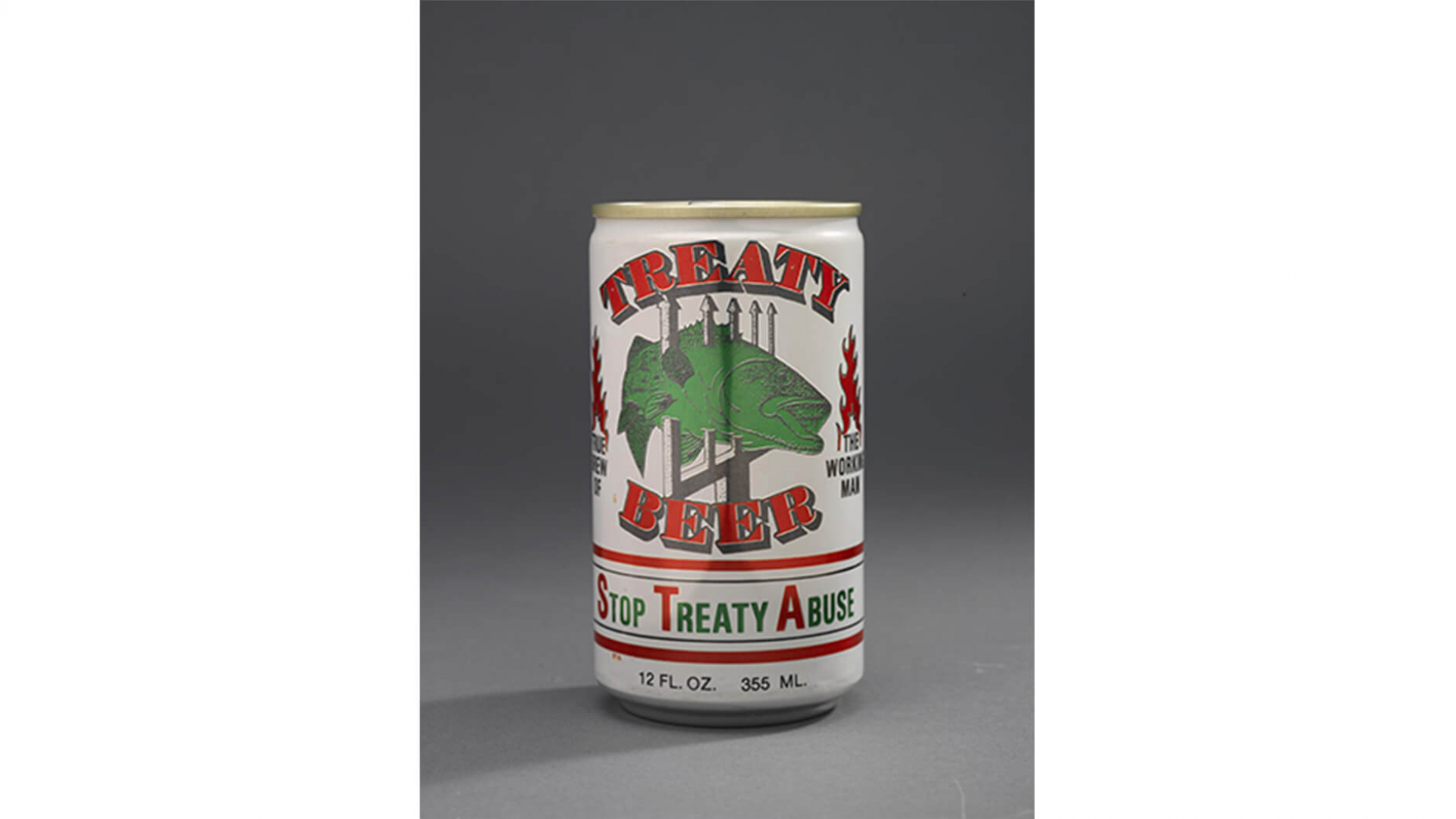An object in the ROM’s collections calls attention to the rejection of Wisconsin Ojibwe treaty rights and highlights how a beer can became a symbol of intolerance
In the late 1980s, Treaty Beer was introduced to incite anti-treaty sentiment against the usufructuary rights of Wisconsin Ojibwe to spearfish on ceded lands.
Dubbed “hate in a can,” Treaty Beer was launched in 1987 by the Wisconsin-based Stop Treaty Abuse (STA) group as a means to raise funds in support of organizations and political candidates advancing propaganda to end treaties between the United States government and the Ojibwe nation.
Although the treaties signed between the Ojibwe and the United States government in the mid-1800s secured the right for the Ojibwe to hunt, fish, and gather on ceded lands, anti-treaty views perceived these activities as not conducive to promoting assimilation. Protestors resisting treaty rights also believed that the treaties gave the Ojibwe unfair access to resources. They believed that Ojibwe spearing activities threatened fish stocks (even though the Ojibwe total harvest was relatively small) and that treaty rights undermined American individualism and equality. A Canadian manifestation of like nature is the recent dispute between Mi’kmaq fishermen and commercial fishing crews in Nova Scotia over rights to harvest lobster in traditional Indigenous territory.
This controversy came to a head in the 1980s when groups resisting treaty rights subjected spearfishers to racial insults, sabotage, and violence. STA was one such militant group that staged demonstrations against Ojibwe spearfishing. Although after six weeks—in response to potential boycotts—the beer manufacturer ceased production, Treaty Beer was a “material voice” raised against the legitimacy of treaty rights. For the Ojibwe, on the other hand, this was an act of violence against their legal rights, traditions, and cultural identity.

